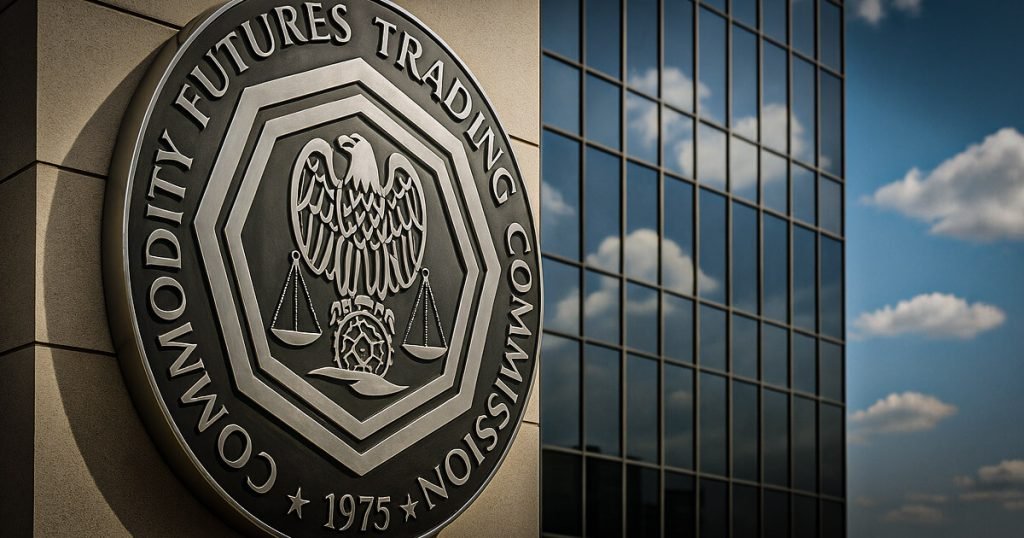Title: CFTC Rescinds Digital Asset Derivative Advisories: A New Era for Crypto Regulations
The Commodity Futures Trading Commission (CFTC) has made a significant move by rescinding two advisory documents that previously set forth unique regulatory expectations for digital asset derivatives. This decision marks a transition toward a more harmonized approach, treating crypto-based financial instruments similarly to traditional derivatives. In an official statement released on March 28, the CFTC’s Division of Market Oversight (DMO) and Division of Clearing and Risk (DCR) announced the withdrawal of CFTC Staff Advisory No. 18-14, concerning virtual currency derivative product listings, and Advisory No. 23-07, addressing expanded digital asset clearing risks. This shift reflects not only the agency’s growing familiarity with crypto derivatives but also acknowledges the evolving landscape of digital asset markets.
The CFTC has outlined that the withdrawal of these advisories is effective immediately, which highlights the agency’s updated perspective on digital asset derivates. The advisory rescindments come after a period of growth and maturation within the digital finance space. In its release, the CFTC stated, “The Advisory reflected staff’s current thinking in 2018 based on experience with virtual currency derivatives products to date.” The removal of these guidelines also signals a move towards equality in regulatory treatment, ensuring crypto derivatives will undergo the same rigorous review processes as traditional financial products, such as oil futures and interest rate swaps.
By abolishing these separate advisories, the CFTC paves the way for more considerable institutional involvement in crypto derivatives markets. This change is expected to reduce compliance anxiety amongst firms looking to engage with or clear digital asset-based products. Established financial institutions, which already operate within traditional derivatives markets, can now navigate the crypto landscape with more confidence. Moreover, this decision addresses the long-standing issues surrounding regulatory imbalances, emphasizing that digital asset derivatives will no longer face arbitrary or inconsistent oversight.
Despite this significant regulatory shift, the CFTC has affirmed that Derivatives Clearing Organizations (DCOs) are still responsible for conducting robust risk assessments. This expectation is crucial, given the inherent volatility and distinct custody challenges associated with digital tokens. The CFTC’s approach aims to strike a balance between upholding market integrity and fostering innovation within the crypto space. The agency’s decision mirrors broader trends among U.S. financial regulators, which have also aimed to modernize regulations pertaining to digital assets.
The Office of the Comptroller of the Currency (OCC) has similarly eased procedural barriers, allowing financial institutions to engage with stablecoin services without prior approval, provided they possess adequate risk management structures. Such regulatory enhancements reflect a collective effort to harmonize the treatment of traditional finance (TradFi) and decentralized finance (DeFi) sectors, as digital financial markets increasingly integrate blockchain technology and tokenized products.
CFTC Chair Rostin Behnam has emphasized the agency’s commitment to principles-based oversight, which seeks to balance innovation with market integrity. However, the effectiveness of this regulatory model across the broader digital asset landscape will depend heavily on future collaborations between agencies and clear legislative directives. As digital asset markets continue to evolve, the CFTC’s approach will likely serve as a bellwether for regulatory developments in the rapidly changing world of cryptocurrency and blockchain finance.
By rescinding these advisories, the CFTC is making a substantial statement about the future of digital asset derivatives, indicating a willingness to embrace new financial technologies while maintaining essential oversight. This repositioning not only encourages institutional engagement but also sets the stage for a more cohesive regulatory framework that can support the growth of innovative financial products in a competitive marketplace.


